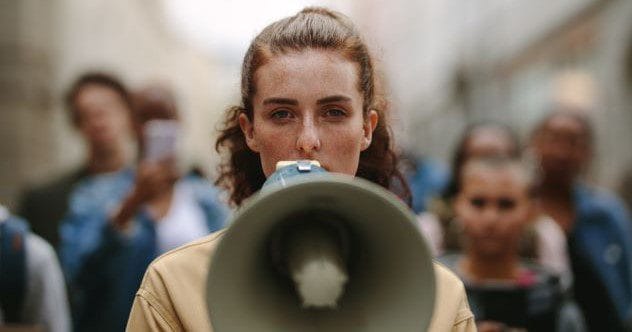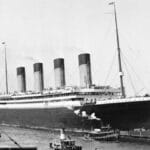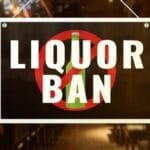In the cutthroat world of advertising, brands are always looking for ways to stand out and go viral. But sometimes, the quest to be original can lead to major marketing fails, causing controversy instead of applause.
These aren’t just minor slip-ups. These campaigns sparked global outrage, ignited debates on social issues, and forced companies to rethink their strategies. Here are ten recent advertising campaigns that crashed and burned.
Pepsi’s “Live for Now” Protest Ad (2017)
Pepsi’s 2017 “Live for Now” ad, featuring Kendall Jenner, is a perfect example of how not to use social movements in advertising. The ad showed Jenner leaving a photoshoot to join a protest, where she hands a Pepsi to a police officer, seemingly solving the tension. It tried to link Pepsi with activism but was slammed for making light of serious social issues, especially the Black Lives Matter movement.
The image of Jenner, a white supermodel, giving a soda to a cop to ease a protest felt insensitive, given the real struggles of marginalized groups facing law enforcement. Critics said the ad reduced complex protests to a superficial moment of corporate goodwill. Social media exploded with criticism, forcing Pepsi to pull the ad within 24 hours and issue an apology. [1]
Heineken’s “Sometimes, Lighter Is Better” (2018)
Heineken faced controversy in 2018 with its “Sometimes, Lighter Is Better” ad for light beer. The ad showed a bartender sliding a Heineken Light past several people of color before it reached a lighter-skinned woman. While the campaign aimed to highlight the beer’s low-calorie content, the slogan and imagery led to accusations of racism.
Many viewers, including Chance the Rapper, criticized the ad for its racial implications, interpreting “lighter is better” as a preference for lighter skin. Heineken defended the ad, saying it was only about the beer’s calories, but the backlash was too strong. The company pulled the ad and apologized, but its reputation had already suffered. [2]
Dolce & Gabbana’s Chinese Ad Campaign (2018)
Dolce & Gabbana’s 2018 ad campaign, meant to celebrate Italian and Chinese culture before a Shanghai fashion show, quickly backfired. The ads showed a Chinese model struggling to eat Italian food with chopsticks. The campaign was criticized for racial stereotyping and cultural insensitivity, reducing Chinese culture to a caricature.
The situation worsened when alleged racist comments from co-founder Stefano Gabbana appeared on social media, fueling public anger. Chinese celebrities boycotted the brand, and Dolce & Gabbana’s Shanghai show was canceled. Despite an apology, the brand’s reputation in China, a key market, took a major hit. [3]
Peloton’s “The Gift That Gives Back” (2019)
Peloton’s 2019 holiday ad sparked a huge backlash. The ad featured a husband gifting his wife a Peloton bike for Christmas, and she then records her fitness journey throughout the year. While meant to highlight personal transformation, many saw it as sexist. The woman, who already looked fit, seemed pressured to maintain her physique for her husband’s approval.
Social media mocked the ad with memes. Critics said it promoted unhealthy gender stereotypes and portrayed the wife as anxious to please her husband. Peloton’s stock dropped, and the company spent weeks managing the PR damage. Despite defending its intentions, Peloton admitted the ad didn’t resonate as planned. [4]
Gillette’s “The Best Men Can Be” (2019)
In 2019, Gillette released “The Best Men Can Be,” addressing toxic masculinity and urging men to challenge bullying, harassment, and sexism. Inspired by the #MeToo movement, the ad showed men stopping negative behaviors and promoting positive role models. While praised by some, it also faced backlash.
Critics accused Gillette of alienating its audience by lecturing men. Some saw the ad as too political, and boycotts gained traction, claiming it unfairly generalized men as complicit in toxic behavior. Gillette stood by the message, but the controversy showed the risks brands face when addressing social and political issues. [5]
H&M’s “Coolest Monkey in the Jungle” Hoodie (2018)
In 2018, H&M faced major controversy after featuring a Black child wearing a hoodie that read “Coolest Monkey in the Jungle.” Given the history of “monkey” as a racial slur, the ad was widely condemned for insensitivity. Social media erupted in outrage, accusing the brand of perpetuating harmful stereotypes.
Celebrities, including The Weeknd, cut ties with H&M, and boycotts spread online. The company quickly pulled the ad and apologized, admitting they failed to consider the cultural implications. The controversy raised questions about diversity and cultural awareness in advertising. [6]
Nivea’s “White Is Purity” Campaign (2017)
In 2017, Nivea released an ad in the Middle East featuring a white woman in white clothing, with the slogan “White Is Purity.” The campaign aimed to promote deodorant, but the imagery and messaging sparked outrage. Critics condemned the ad for promoting racist ideas and outdated beauty standards.
Social media users pointed out the problematic implications of linking purity with whiteness, and the backlash spread quickly. Nivea pulled the ad and apologized, saying it wasn’t meant to offend. The controversy highlighted how easily marketing can fail when it ignores cultural sensitivities. [7]
Gap’s “Love for All” Ad (2017)
Gap’s 2017 “Love for All” campaign, meant to celebrate diversity, faced criticism over one image. The ad featured children from different backgrounds, but viewers objected to a white child resting their arm on a Black child’s head. Critics argued it reinforced stereotypes and showed a troubling power dynamic.
The backlash was swift, accusing Gap of insensitivity. The company removed the image and apologized, explaining the intention was to promote unity. The incident underscored the importance of thoughtful representation in advertising. [8]
Kendall Jenner’s “Fyre Festival” Promo (2017)
Kendall Jenner, along with other influencers, was caught in the Fyre Festival scandal after promoting the event on Instagram. The festival, marketed as a luxury music experience in the Bahamas, was a disaster, with attendees finding poor conditions and no performances. Jenner, reportedly paid $250,000 for a single post, faced backlash for endorsing a scam.
As the festival’s failure became clear, Jenner and others were criticized for promoting the event without due diligence. The backlash led to lawsuits and became a cautionary tale about influencer marketing. [9]
Burger King’s “Women Belong in the Kitchen” (2021)
On International Women’s Day 2021, Burger King UK launched a campaign to highlight gender disparity in the culinary industry. The headline, “Women belong in the kitchen,” sparked immediate outrage. While meant to draw attention to inequality and promote scholarships for female chefs, many saw it as sexist.
The backlash was quick and widespread, with social media criticizing Burger King for the tone-deaf phrase, especially on a day celebrating women. Although the brand deleted the tweet and apologized, the controversy overshadowed the campaign’s message of support. [10]
These advertising blunders serve as important lessons for brands. In today’s socially conscious world, cultural sensitivity, diversity, and ethical considerations are crucial for successful marketing. When brands miss the mark, the consequences can be severe.
What do you think about these controversial campaigns? Share your thoughts in the comments below!










